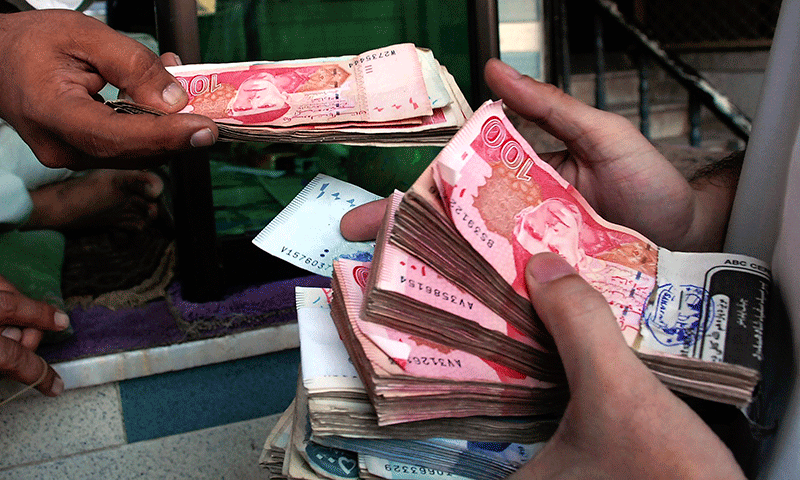As the economic problems intensify, the government is opting for larger external as well as domestic debt. The external debt has risen to $40.32 billion from $33.32 billion over four years-- an addition of almost seven billion dollars since 2003-04.
Along with that, the domestic debt has also shot up by Rs228.34 billion in the first four months of the current financial year. The foreign exchange reserves have come down from $16 billion to $14.77 billion and the rupee has depreciated to 63 for a dollar in the open market. This has happened because of falling revenues, higher expenditure and widening fiscal and current account deficits. A weaker exchange rate means more payment in rupees for every dollar of debt.
The tax revenues have fallen as too many factories are closed or in partial production for want of power, gas and deteriorating situation. The factories which are doing too well like the cement factories are not paying their full taxes. Day after day, reports appear of massive tax evasion by major companies,. Otherwise doing very well. The tax evasion is also due to the collusion of the taxation officials, particularly in respect of sales tax refund.
The flourishing sectors like the stock exchange or the real estate pay minimal tax. If such low tax revenues are the result of evasion at one end, it is the outcome of corruption at the other end. Radical measures are being discussed to improve the tax collection. But in spite of the many reforms, more proposed than practiced, the revenue collection does not reflect business expansion.
The expenditure is also rising because of the law and order problem including compensation for the dead and the property losses and the need to rush large forces to new areas. The debt is rising because of the sharp rise in the price of crude oil (which recently touched hundred dollars a barrel ) and most imported food items including edible oil, milk powder, tea etc As a result, the sensitive price index which comprises of items consumed by the poor, has risen by 12.3 per cent. The food inflation is really high and is getting worse all the time.
The government is also cutting down the outlay on Public Sector Development Programme by Rs70 billion. But the PSDP is proposed to be doubled from $8 billion to $16 billion through private-public partnership, which is to be pursued seriously now.
The domestic borrowing is to be reduced through eliminating subsidy on oil. Caretaker finance minister Dr Salman Shah says that it will be wiped out in four instalments in as many months so that the next budget will have no subsidy. Meanwhile, the gas prices have been raised to reduce burden on the budget.
The issue is whether the consumers will be exempted from the development surcharge on oil and gas surcharge which is indeed very heavy. Now Dr Salman Shah estimates that Rs125 billion is to be collected through two new National Savings Scheme products. The interest rate on national savings will not however be increased as that could increase the financial burden of the government The borrowings from the national savings is anti-inflationary. The government has been making use of the national savings at a lower rate of interest which is higher than the average bank deposit rates..
In spite of the heavy borrowing, external as well as domestic, Dr Salman Shah says the total borrowing is lower than eight years ago. And the per capita income, he says, has risen from $450 to $1000 so the government can afford to borrow more without causing any serious upsets.
Another drain on the foreign exchange resources is the heavy profit remitted by foreign companies which are allowed to remit 100 per cent of their earnings. In view of the economic uncertainties, the companies are not retaining their profit with them but dispatching them home post haste.
What is not understood is that while the privatisation proceeds are mentioned as part of the revenues, the understanding is that the 90 per cent of the proceeds will be used for repaying the loans and 10 per cent for the development of the country. But now the total income from privatisation is mentioned as the revenue of the state.










































Dear visitor, the comments section is undergoing an overhaul and will return soon.